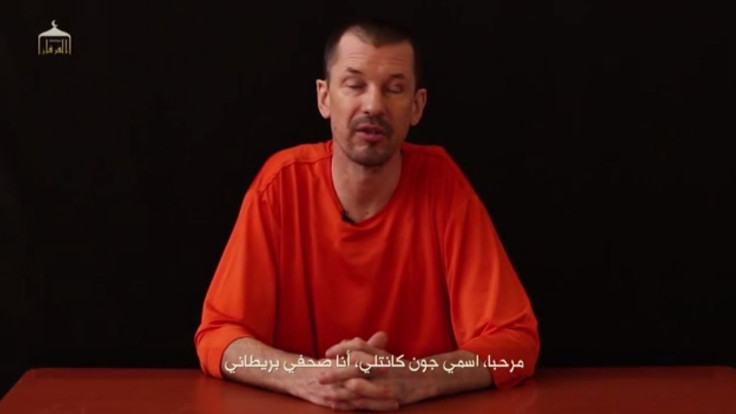ISIS Releases Second Edition Of Its 'Lend Me Your Ears' Propaganda Series Featuring John Cantlie

A third video featuring British journalist John Cantlie, who was captured by the Islamic State group in 2012, surfaced late on Monday, barely a week after the second video of the propaganda series titled “Lend Me Your Ears: Episode 1” was released.
Like the previous two videos, the new five-and-a-half minute footage shows Cantlie -- wearing an orange jumpsuit and sitting at a desk against a dark background -- apparently reading from a prepared script.
Referring to President Barack Obama’s speech on the eve of the thirteenth anniversary of the 9/11 attacks, during which he authorized airstrikes on ISIS-controlled territories in Syria, Cantlie says: “Air power is good at taking out specific targets, but it is not much use at taking and holding ground. For that you need effective and disciplined troops.”
In the video, Cantlie mocks the American strategy of employing air power combined with local ground forces, adding that the loose coalition of the Iraqi army, Iraqi national guard and Kurdish peshmerga fighters have “a long history of under-performing” and are incapable of forming a “credible infantry” on the ground.
He also describes the Free Syrian Army as an “undisciplined, corrupt and largely ineffective fighting force” and says that arming Syrian rebels is “a completely pointless exercise,” because the weapons ultimately end up in the hands of the Islamic State group.
“For their part the Islamic State say they welcome meeting Obama's under-construction army,” Cantlie says, criticizing Obama’s 9/11 speech as being overly simplistic and “disappointingly predictable.”
He also states that the U.S. is fast moving toward a “Gulf War Three” situation in Iraq and Syria.
This is the third video featuring Cantlie released by the Islamic State group. In the previous two videos, Cantlie had warned the U.S. that attacking ISIS would create “a new Vietnam” for the U.S. and the UK, and had also criticized the British government for “abandoning” him.
© Copyright IBTimes 2025. All rights reserved.





















